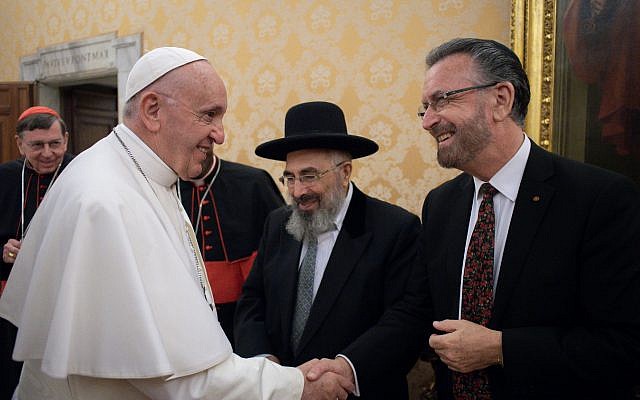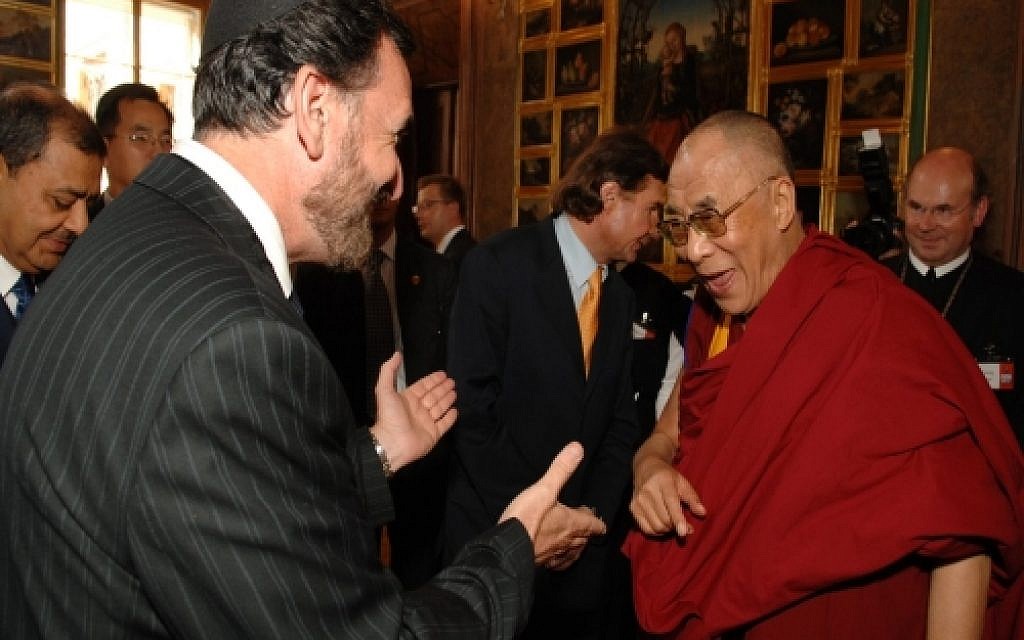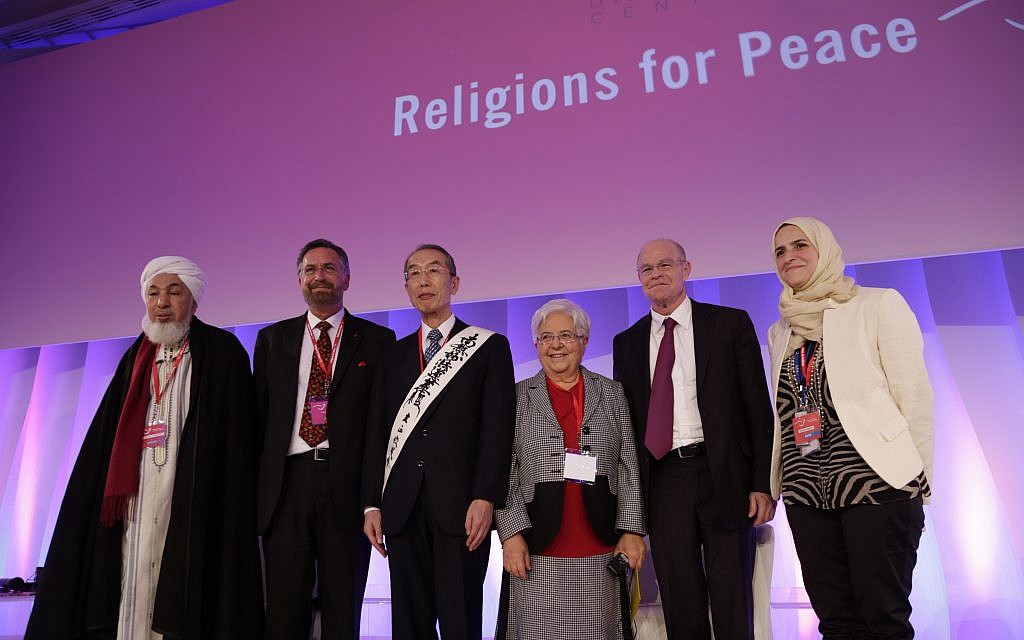AJC’s Rabbi Rosen to Discuss Judaism and Other Religions
“The message is that there’s a lot of good news out in the world, even though one hears the bad news. There has never been an era with so much cooperation between religions.”

David Rosen has a long and storied career interacting with individuals of vastly different religious and cultural backgrounds. As American Jewish Committee’s international director of interreligious affairs, he planned to share some of that experience at the organization’s 75th anniversary Thursday and at Congregation Shearith Israel this Shabbat.
Discussing the events Jan. 10-12, he explained that they all shared a common theme.
“The message is that there’s a lot of good news out in the world, even though one hears the bad news. There has never been an era with so much cooperation between religions,” Rosen said.
Friday’s discussion will take place at 8 p.m. after a community Shabbat dinner. The talk, in keeping with the theme of interreligious cooperation, is titled: “The Catholic Church and the Jewish People/State of Israel Today.”
Rosen explained that Friday’s event will tell the story of relations between Jews and the Catholic Church and discuss modern cooperation between the two.

“Part of the irony today is that we take cooperation with the Catholic Church for granted,” Rosen said. “I would like to put that in perspective and identify the contributions of the three modern popes to interfaith interactions.”
His first Saturday presentation will take place during Shabbat morning services, focusing on “AJC and the International Muslim Interfaith Initiatives,” and his second, at 1 p.m., on “The Global Interreligious Landscape, the Jews & AJC.”
He was born in England, the son of Rabbi Kopul Rosen, the founding principal of Carmel College in England; studied in England and in Jerusalem; and served in the Israel Defense Forces as a chaplain to the forces in West Sinai.
Chief rabbi roles followed: first at the largest Jewish congregation in South Africa, where he also founded the Cape Town Interfaith Forum, and then as chief rabbi of Ireland. He served in that role until he returned to Israel in 1985 as dean of the Sapir Center for Jewish Education and Culture in the Old City of Jerusalem. He later served as the Anti-Defamation League’s director of interfaith relations in Israel, and its co-liaison to the Vatican.

In addition to his Catholic relations, Rosen is a board member of the King Abdullah International Center for Interreligious and Intercultural Dialogue and has served as a member of the executive committee of the World Congress of Imams and Rabbis for Peace. He took on his current role at the AJC in 2001.
Throughout his decorated career, Rosen has been dedicated to the values of interfaith communication.
He was honored by Pope Benedict XVI as a papal knight of the Order of St. Gregory the Great, and by Queen Elizabeth II as a commander of the British empire, among a number of other accolades, for his commitment to interfaith reconciliation and cooperation.
While news of interreligious interactions tends to focus on negative events, the vast majority of news today is better than it’s ever been, he said.
“The problem is within the breast of the human heart, we are far more attracted to the sensationalist and the negative than we are by the positive. We are horrified by it, but we are also stimulated by it,” Rosen said. “There is within western media — not so much in the United States, but certainly in Europe — generally speaking, a negative bias towards religion, a certain kind of glee to expose its failure.”
Dialing his message down to the simplest possible explanation, he was certain not to focus on the negative. “We’ve never had it so good,” he emphasized.



comments